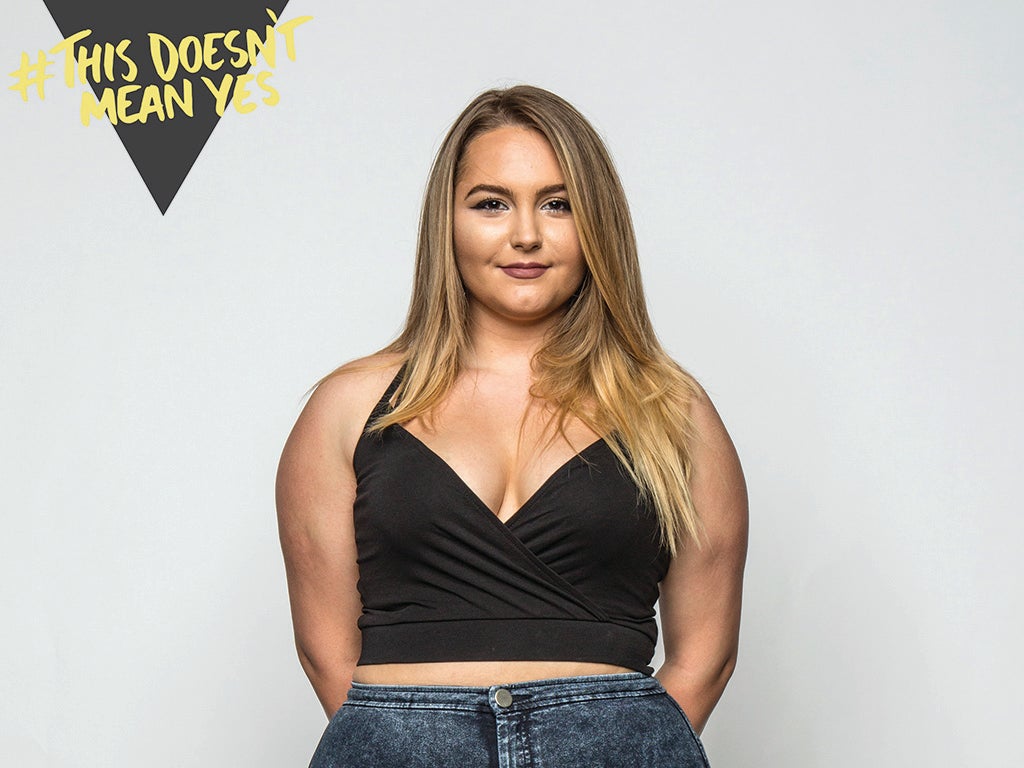This Doesn’t Mean Yes campaign: tackling the insidious myth of women 'asking for it' through clothing or behaviour
An Amnesty International survey found that more than a quarter of people believe women are at least partially responsible for their rape if they wear 'sexy' or revealing clothing, and one in three people believe that women who behave flirtatiously are at least partially responsible

“What was I wearing when I was raped? My pyjamas.”
Rachel*, is in her late twenties and was raped by a former partner.
“My relationship had broken down and my ex-partner showed up outside my house late at night, drunk and shouting,” she says.
“I got asked: Why did I open the door? Why did I let this person in? - you’ve got someone shouting outside your door and you don't want to piss off your neighbours.
"The answer always seems to be not to get raped rather than not to rape someone.
“The police officer who asked what I was wearing was talking in the context of what evidence they could collect.
“His reaction was kind of working out what it meant when I said I wasn’t wearing a bra. I don’t go to bed in a bra. What you go to bed to sleep in in your own home when your doors are locked, the last thing you should be thinking about is what you might be wearing.
“The last thing I should be thinking is ‘I want to put on the appropriate clothing to indicate I don't want to be raped or sexually active right now’.”
Rachel, and other survivors of sexual violence, have hailed a “powerful” new campaign that aims to dispel the myth that what a woman chooses to wear can have some bearing on whether she is raped.
A woman’s choice of clothing in no way reflects a tacit consent and she is never simply “asking for it”, say organisers of the ThisDoesntMeanYes campaign.
The initiative, backed by Rape Crisis South London, saw hundreds of strangers congregate in a pop-up studio in London earlier this month to strike a pose for fashion photographer Perou, who has worked with stars including Daniel Radcliffe and Helen Mirren.
The purpose of the shoot was to highlight that however a woman chooses to express herself through clothing, she is never “asking” to be raped and the blame lies entirely with the attacker, not the victim.
It may sound obvious, but one Amnesty International survey found that more than a quarter of people believe women are at least partially responsible for their rape if they wear “sexy” or revealing clothing.
The same poll found that one in three people believe that women who behave flirtatiously are at least partially responsible if they are raped.
This Doesn’t Mean Yes campaign: in pictures
Show all 11Organisers of ThisDoesntMeanYes have attacked this “insidious fable”.
“There’s a myth that surrounds women,” they write on their website.
“Women who dress or behave suggestively, women who are playful or act provocatively, women who flirt openly or discuss sex - they’re ‘asking for it’. It’s an insidious fable, and it needs to stop,” they state.
“Every woman has a right to freedom of expression. No woman deserves to be raped for it.
“No one should be able to blame rape on a short skirt. A short skirt can’t talk - a short skirt can’t say ‘yes’.”
One of the key aims of #ThisDoesntMeanYes is to initiate meaningful discussion around the issue of consent. For the activists behind the project the only form of consent should be “an active and embodied ‘Yes’.”
“This campaign is so powerful,” says Rachel. “Even if it can’t change the attitudes of every man and woman overnight about what an outfit means, it is showing solidarity with people who've gone through sexual violence”.
“They are supporting the women and loosening the shame, making them feel aware that they shouldn’t feel any shame. It makes it easier to get dressed in the morning.”
Rachel says that since her attack she has felt compelled to cover up in a bid to make herself “invisible”, and has also begun obsessing over what kind of “message” an outfit might convey.
“Trying to go on a date for the first time [after being raped] I spent about five hours in front of my wardrobe trying to work out what message I would give off. I was really anxious and cancelled my date,” she says.
“I started wearing clothes that would make me as invisible as possible - no patterns, nothing to draw attention to me. It became so I was dressing so I didn’t get raped.
“Only recently have I been wearing skirts. Putting a skirt on feels like a direct act of rebellion. I know if something happens to me while I'm wearing this people will be asking what the length of the skirt was.
“The choice of clothing isn't the choice of sex. The fact that you’re aroused by someone wearing a particular type of clothing doesn't give you a right to that person or to have sex with them,” she says.
“Crucially this comes down to consent. If there isn’t consent, it’s rape.”
For more information visit www.thisdoesntmeanyes.com
*Name has been changed to protect their privacy
Subscribe to Independent Premium to bookmark this article
Want to bookmark your favourite articles and stories to read or reference later? Start your Independent Premium subscription today.
